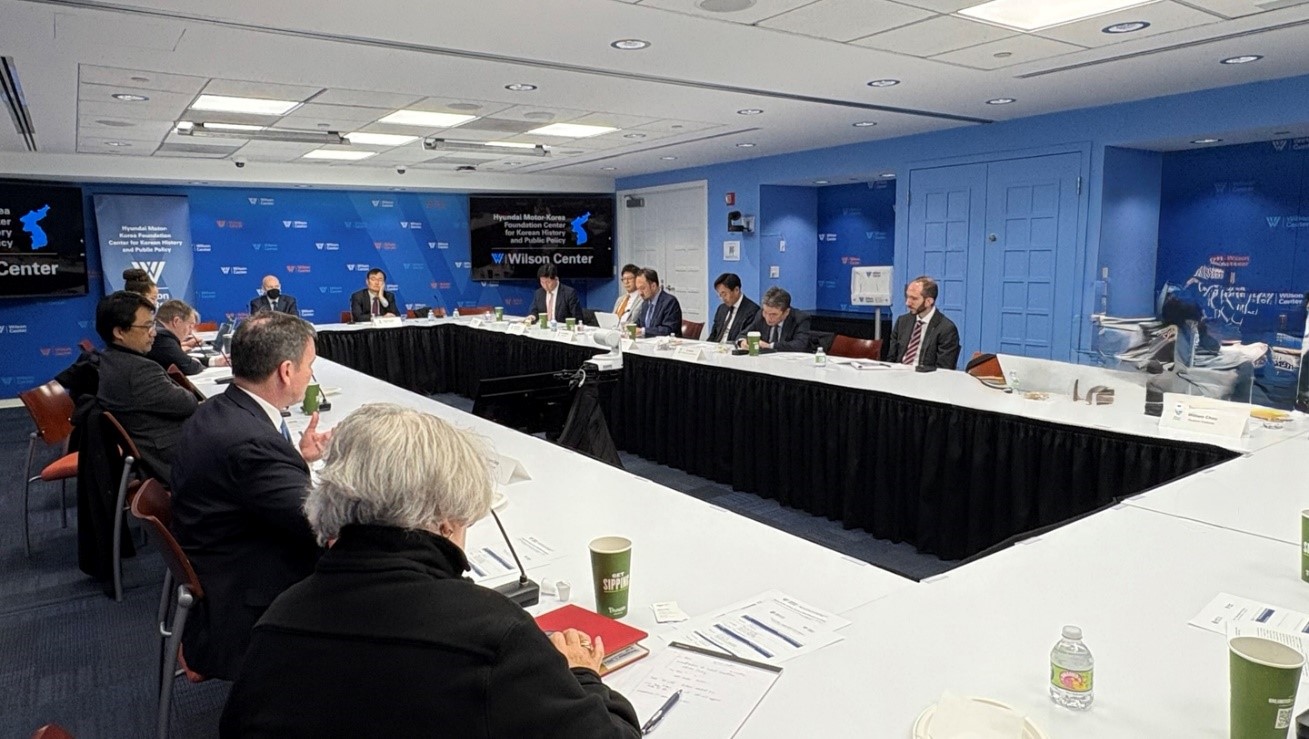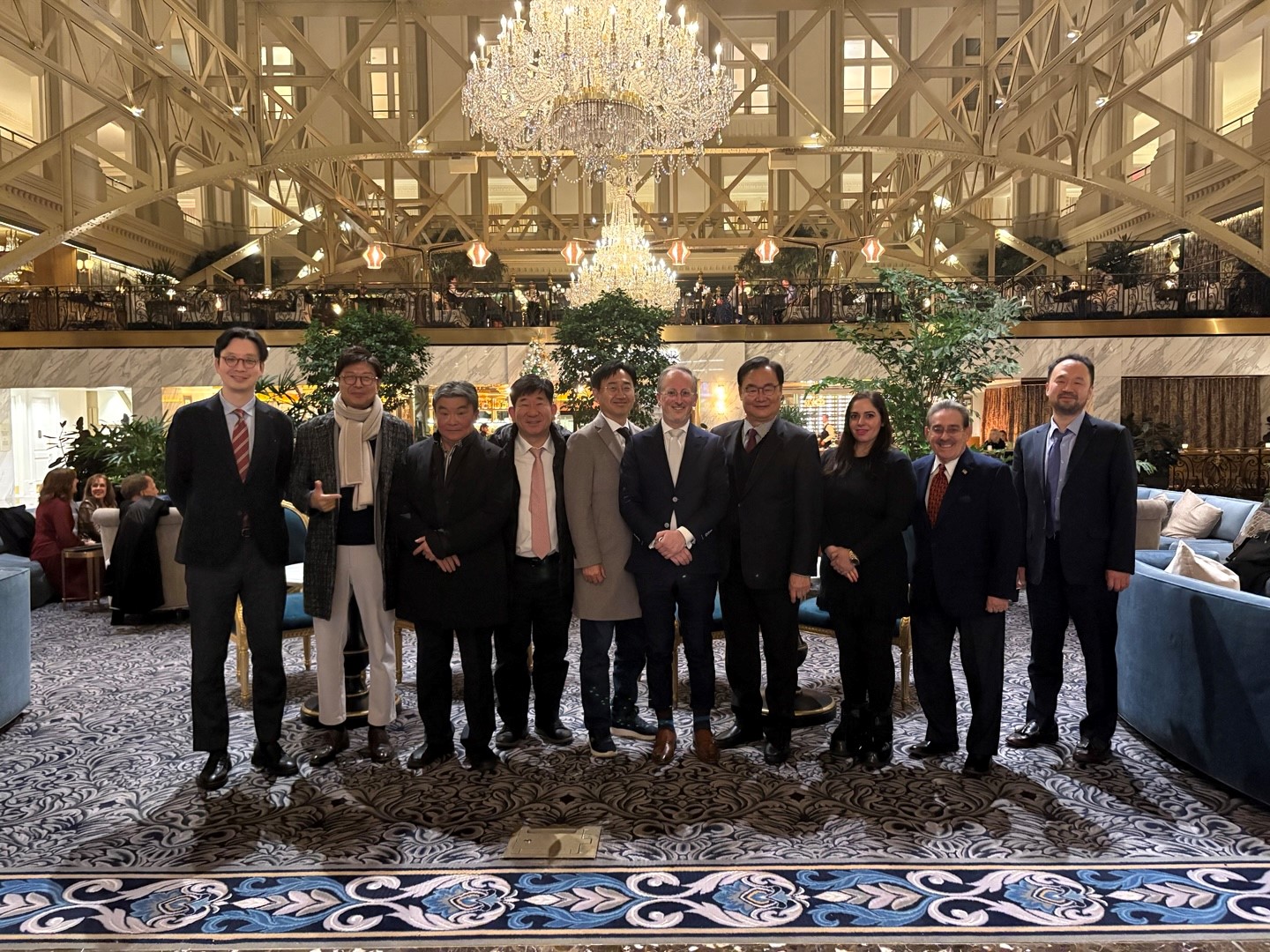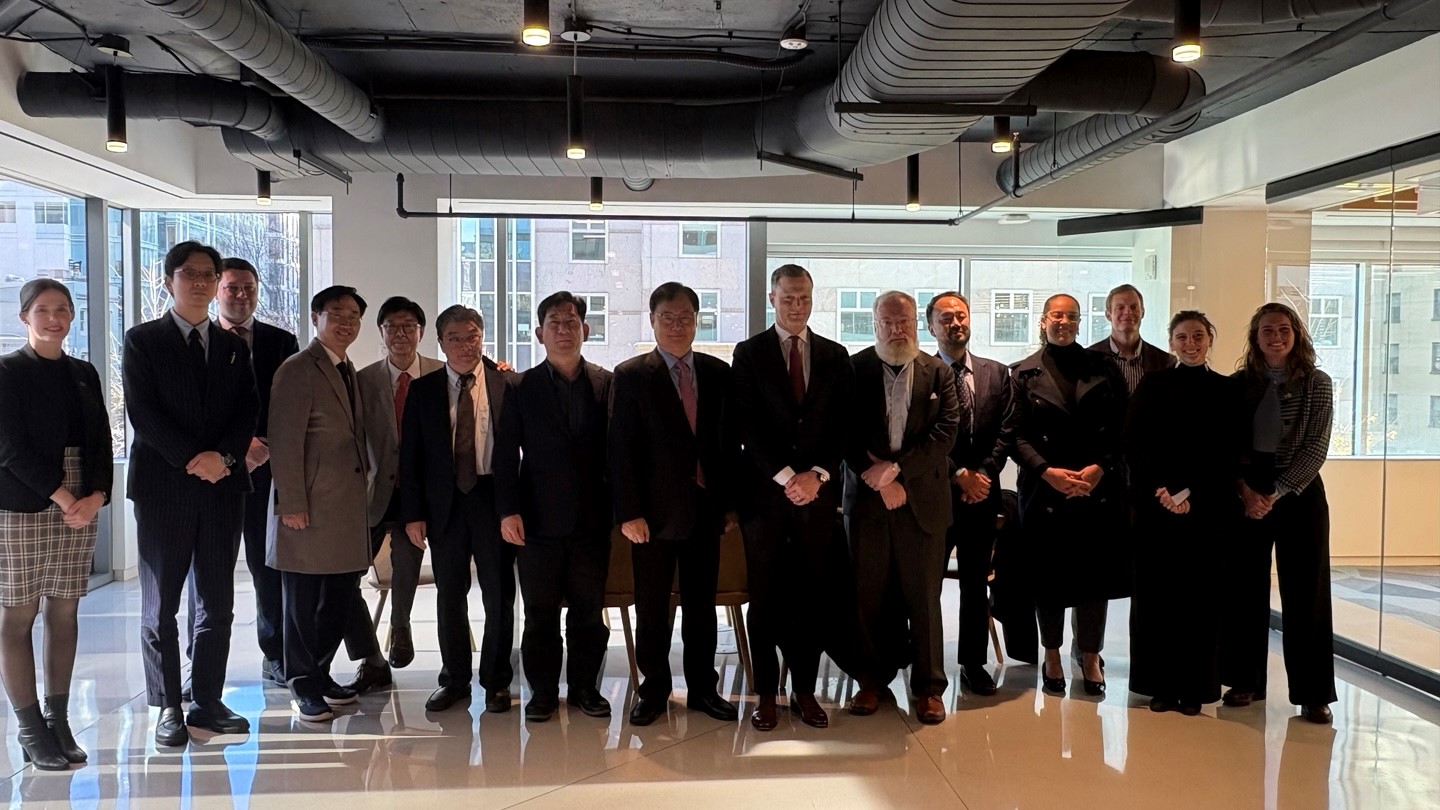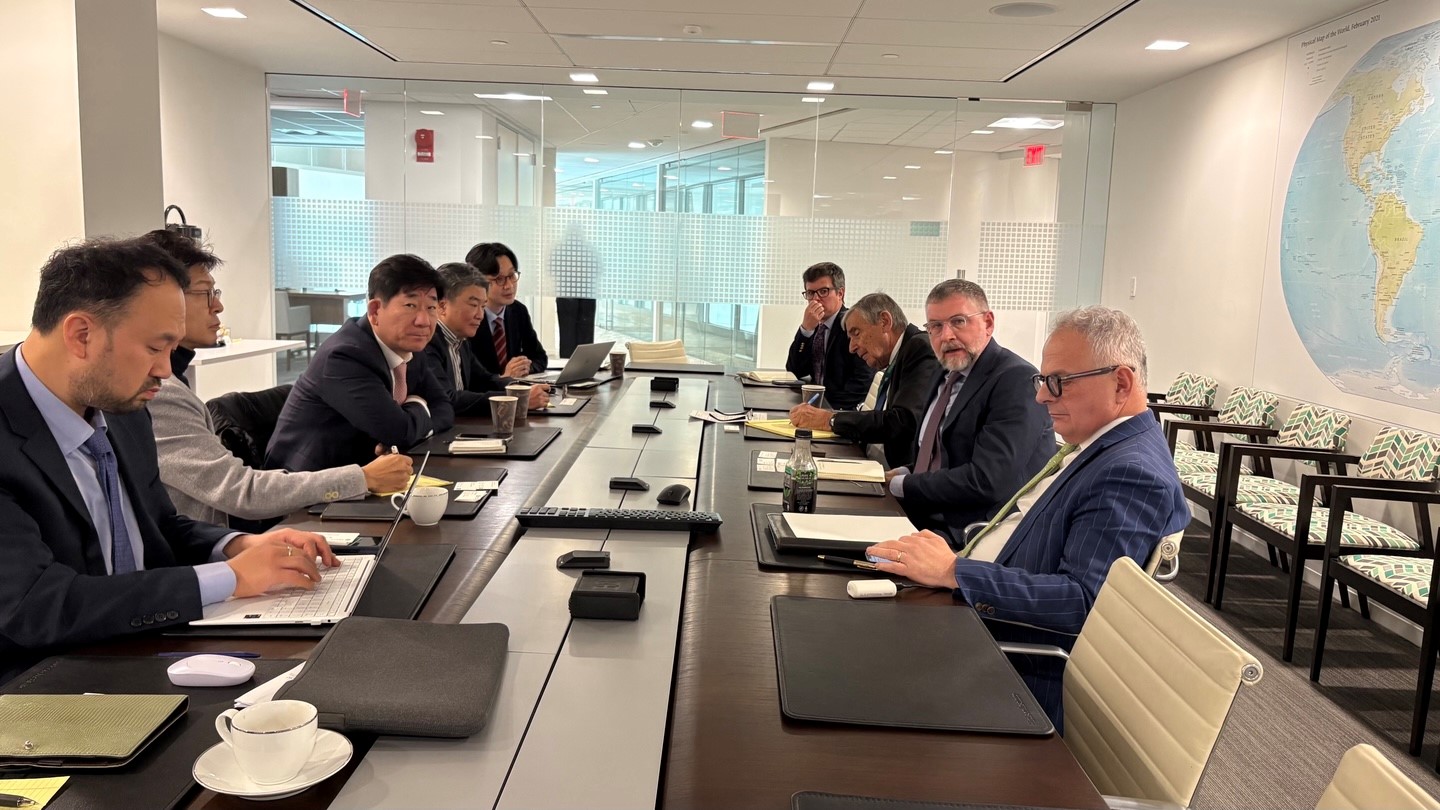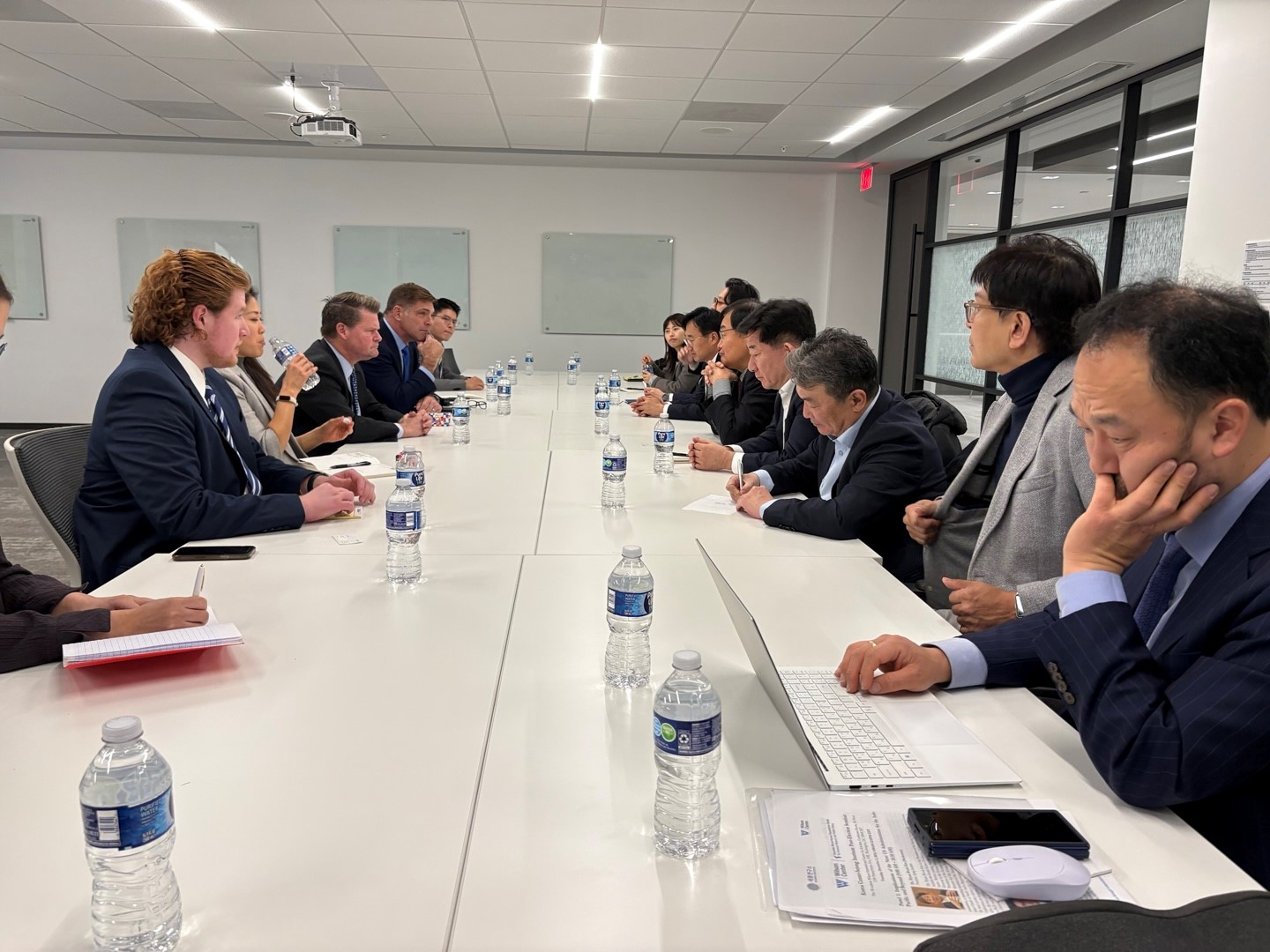The Sejong Institute held a Korea-US Joint Seminar from December 2 to 4 at five research institutes located in Washington, D.C.
The joint seminar, titled "Changes in U.S. Foreign Policy under the New Administration and Responses," invited policy experts from both Korea and the United States to discuss the expected changes in foreign policy under the second term of the Trump administration. The seminar aimed to explore the development of the Korea-U.S. alliance and tripartite cooperation among Korea, the U.S., and Japan, as well as to discuss U.S. policies towards China (Taiwan), North Korea, and the Russia-Ukraine war, and to explore ways to strengthen Korea-U.S. coordination.
The following Korean participants took part in the Korea-U.S. Joint Seminar in Washington:
- Chairman Yong Joon Lee, Sejong Institute
- President Hyun Wook Kim, Sejong Institute
- Principal Fellow Beom-Cheol Shin, Sejong Institute
- Senior Fellow Jae-hung Chung, Sejong Institute
- Research Fellow Sungwon Lee, Sejong Institute
- Professor Jaechun Kim, Sogang University
- Senior Research Fellow Jinha Kim, Korea Institute for National Unification
On December 2 afternoon, the Hudson Institute and the Sejong Institute held a meeting at the Hudson Institute in Washington, D.C. The discussion focused on the implications of North Korea-Russia cooperation and ways to strengthen Korea-U.S. deterrence. Participants engaged in an open debate on these topics.
The following participants from the Hudson Institute attended the meeting:
- Joel Scanlon (Executive Vice President)
- James Przystup (Senior Fellow, Japan Chair)
- Kenneth Weinstein (Japan Chair)
- Peter Rough (Senior Fellow, Director at Center on Europe and Eurasia)
- Patrick Cronin (Asia-Pacific Security Chair)
Following that, a meeting between the Gold Institute and Sejong Institute took place, where discussions were held regarding changes in U.S. foreign policy under the Trump administration and expert analyses on foreign and security policy.
The following individuals from Gold Institute participated in the meeting:
- Eli M. Gold (Chairman, President)
- Manuel Rosales (Advisor)
- Adelle Nazarian (Senior Fellow)
On December 3 morning, the Sejong Institute held a joint seminar with the Wilson Center. In the first session, titled "Implications of the Next U.S. Administration for the Indo-Pacific and Beyond," presentations were made by Robert Daly (Wilson Center/Director, Kissinger Institute on China and the United States), Kim Jae-cheon (Professor at Sogang University), William Chou (Hudson Institute/Deputy Director, Japan Chair), and Jeong Jae-heung (Senior Research Fellow at Sejong Institute). The discussion then shifted to topics like the U.S. Indo-Pacific Strategy and protectionist policies.
The second session, titled "Implications of the Next U.S. Administration for the Korean Peninsula," featured presentations by Shin Bum-cheol (Senior Research Fellow at Sejong Institute), Ellen Kim (CSIS/Senior Fellow), Kim Jin-ha (Senior Research Fellow at KINU), Rachel Minyoung Lee (Stimson Center/Senior Fellow), and Scott Snyder (KEI/President, CEO). The session focused on U.S. America First policies, defense cost-sharing, and the expansion of the U.S.'s role in the region, followed by a free discussion among participants.
Participants from the Wilson Center included:
- Troy Stangarone (Director of the Hyundai Motor-Korea Foundation Center for Korean History)
- Kayla Orta (Senior Associate)
- Soojin Park (Global Fellow)
- Jim Mullinax (State Department Fellow)
- Pamela Steins (Air Force Fellow)
- Robert Daly (Director, Kissinger Institute on China and the United States)
- William Chou (Hudson Institute, Deputy Director, Japan Chair)
- Ellen Kim (CSIS, Senior Fellow)
- Rachel Minyoung Lee (Stimson Center, Senior Fellow)
- Scott Snyder (KEI, President, CEO)
- Hannah Burden (British Embassy, Second Secretary)
- Scott Jacobs (Coupang, Senior Principal)
- Mark Manyin (Congressional Research Service, Specialist)
- Daniel Longo (Congressional Research Service, Specialist)
- Tami Overby (Albright Stonebridge Group, Senior Counselor)
- Jonathan Rose (Office of Senator Schatz)
- James Siebens (Stimson Center, Fellow)
- Clint Work (Korea Economic Institute, Fellow)
- Esther Im (Foreign Policy for America, Senior Peace and Security Advisor)
On the afternoon of December 3, a meeting between the Project 2049 Institute and Sejong Institute took place in Arlington, Virginia. The discussion centered on U.S. foreign policy under the new administration: Changes and response strategies.
The following individuals from Project 2049 Institute participated in the meeting:
- Randall Schriver (Chairman)
- John Gastright Jr. (President)
- Jennifer Hong (Senior Director)
- Grace Price (Director of Programs)
Finally, on December 4 morning, a joint seminar with the Atlantic Council and Sejong Institute was held. The seminar focused on the changes in the Trump administration's foreign policy, the role of alliance partners in countering China, adjustments to the Korea-U.S. alliance, and economic cooperation, followed by a free discussion among the attendees.
Participants from the Atlantic Council are as follows:
- Matthew Kroenig (Vice President and Senior Director)
- Markus Garlauskas (Director, Indo-Pacific Security Initiative)
- Lauren Gilbert (Deputy Director)
- Tressa Guenov (Director, Operations and Programs, and Senior Fellow)
- Kyoko Imai (Associate Director)
- Ross Tokola (Nonresident Fellow)
- Katherine Yusko (Program Assistant)
- Matthew Haynes (Political-Military Affairs Specialist, US Air Force)
- Kayla Orta (Senior Associate, Wilson Center)
- Rosa Park-Tokola (International Analyst, Noblis)
- Sloane Rice (Country Director for Korea, Office of the Secretary of Defense)
[1].jpg)
